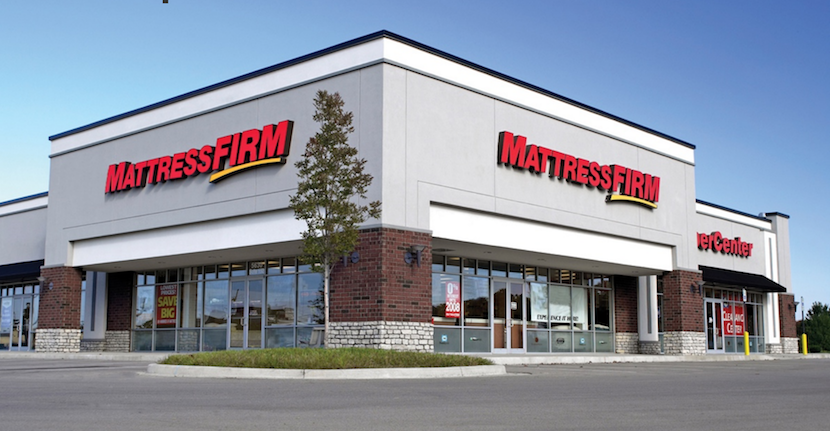Although South Africa’s Big Three industrial groups all have sizeable European operations, Markus Jooste’s Steinhoff is the first to take a bet in the US. Bidvest’s Brian Joffe has struggled for years to find the right American deal, and post-Bill Lynch, Imperial has been focusing on consolidation rather than expansion. But after switching their group’s primary listing to Frankfurt, Jooste and 74 year old business partner Christo Wiese, have been in a hurry to turn Steinhoff into a major global player. After walking away from his first two acquisition attempts, Jooste told me he’d received more plaudits for that than he’d gotten when actually concluding deals. Shareholders are clearly nervous that in its haste, Steinhoff might overpay – and be forced to repent at leisure. – Alec Hogg
By
(Bloomberg Gadfly) — After losing out on two contested bids, and sealing a third only for an activist investor to pop up, Steinhoff isn’t taking it lying down.
The South African retail conglomerate has agreed to acquire Mattress Firm, the U.S.’s biggest bed retailer by market share, for an enterprise value of $3.8 billion.
After showing admirable financial discipline in the past, Steinhoff looks like it has now loosened its purse strings.
On any measure, Mattress Firm is expensive: Steinhoff is paying a 115 percent premium to Mattress Firm’s closing share price on Friday. The $64 per share cash offer price is 29 times 2017 forecast earnings, almost double rival Tempur Sealy’s 15.6 times. The return on the acquisition in the first year would be about an estimated 4 percent, below Mattress Firm’s cost of capital — excluding the benefit of deal-related savings.

This is a big change from Steinhoff’s past tactics of abandoning transactions when the terms started to look too expensive.
It showed discipline by leaving Home Retail Group’s Argos home goods division to U.K. grocer Sainsbury, when the synergies were clearer. It gave up on an offer for French electronics retailer Darty, but not before making a rival overpay for the company.
Steinhoff showed restraint by waiting until after the referendum on European Union membership to lay out the terms of its offer for Poundland, taking advantage of market turmoil after the vote to obtain cheaper terms.
There’s some justification for it paying more this time.
It looks like with Mattress Firm, Steinhoff’s giving a premium to enter the U.S. That seems fair, given that the outlook for the American economy is more robust than for Britain.
It also should be able to generate decent synergies with its bed and furniture operations. But investors must take this on trust — worryingly, it hasn’t made any firm disclosures on expected earnings uplift from either Poundland or Mattress Firm.
Steinhoff might also have been mindful of the activist sideswipe of its bid for Poundland. Its 222 pence per share offer last month represented a 40 percent premium to Poundland’s closing share price on the day before Steinhoff’s interest emerged, which looked decent but not excessive.
But since Poundland recommended the offer, activist Elliott Associates has built a 17.5 percent stake in the company. Since Steinhoff requires approval from 75 percent of the shares it doesn’t already own for the deal to go through, there’s now a risk it might need to raise its offer. Elliott isn’t now in a position to force this, but it isn’t too far off buying the additional shares it needs to get there. A recent pickup in the share price above the offer level suggests there’s an expectation building that the offer will get increased.
So with a fuller offer for Mattress Firm, Steinhoff may have been hoping to avert a similar activist intervention. In fact, as our Gadfly colleague Gillian Tan has noted, activist funds have been pressing Mattress Firm to enhance shareholder value. They should be satisfied with Steinhoff’s chunky premium. But that is not guaranteed.
Why Mattress Firm May Give Steinhoff Sleepless Nights https://t.co/12KiowWqrc
— Tom Robbins (@BaragwanathBiz) August 8, 2016
When it comes to Poundland, Steinhoff has some room to raise its offer without being too profligate. Its offer is at 18 times 2017 earnings, around Poundland’s average over the past two years and should generate an estimated first-year return of 6 percent. Potential for synergies might justify going higher.
Steinhoff hasn’t detailed its projected cost savings or revenue gains in either transaction. That avoids handing the boards of target companies or activist shareholders fodder to push for a higher price.
But it also forces Steinhoff to rely on investors’ good will, and management will have to show that it’s not fallen asleep on the job.


